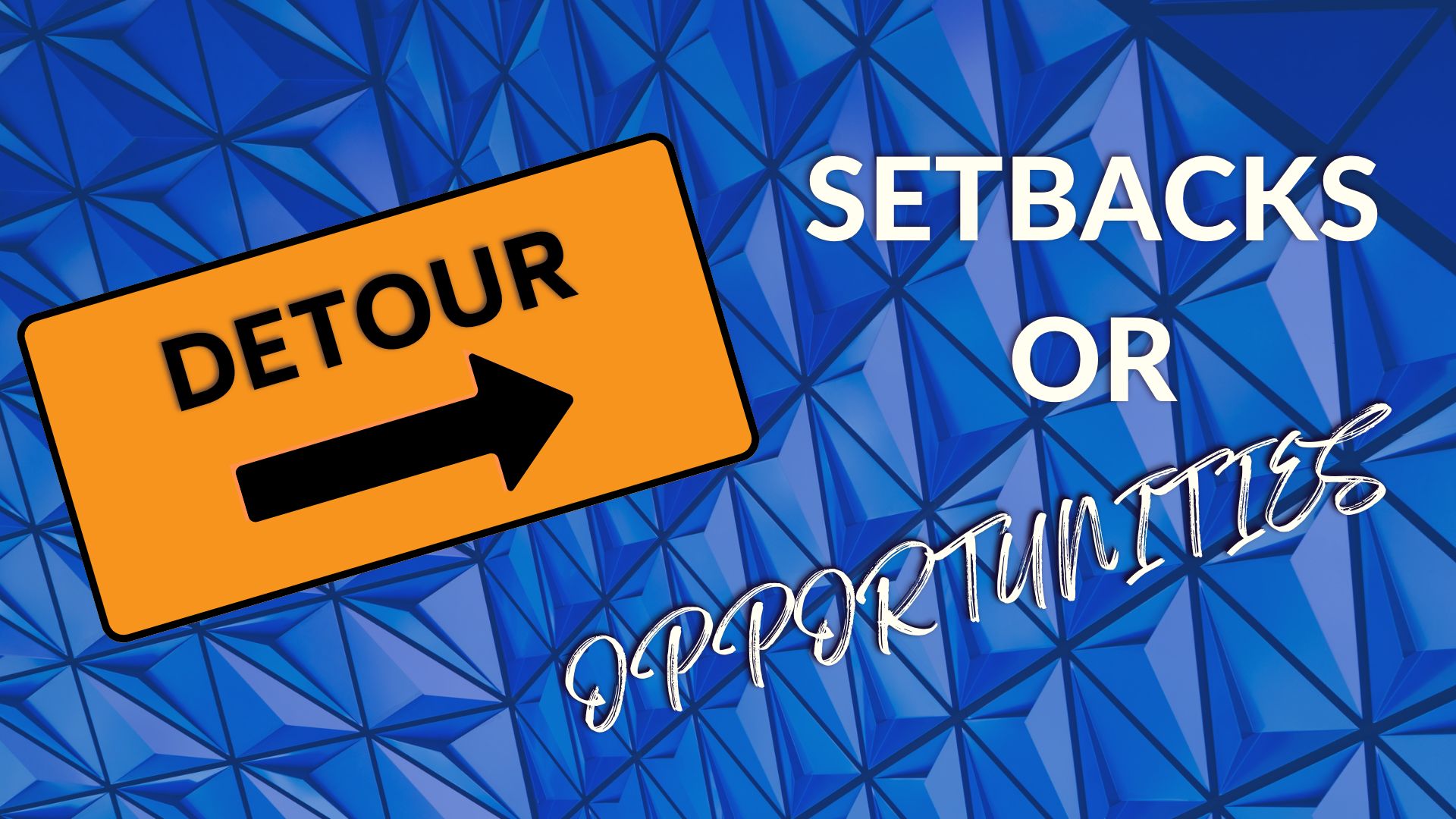Are Setbacks Really Opportunities ?

In my opinion, there is no such thing as failure. I believe that we always succeed in everything that we set out to do, but only to the point of the detail of the end goal that we have mapped out. So if we only map out half the end goal, then we will achieve it. Failure is nothing more than the gap between what we want our goal to be and the detail that we gave to the plan to achieve the goal. All that “failure” means is that we must add more detail to the end goal in mind.
Like everything in life, it’s how we respond to setbacks rather than the fact that they exist. If we decide that we have done all we can and that we still did not reach our goal or benefit from the experience we have gained, then I suppose you could call that failure, but it is probably more “giving up” and that’s somewhat different.
It is when we view setbacks as a reflection of our abilities or worth that we become discouraged and give up on our goals. However, if we learn to view setbacks as an opportunity for growth and learning, we can turn them into stepping stones and achieve greater success in the long run.
So, how can we learn to view setbacks as an opportunity for growth and learning? Here are some tips:
Reframe your mindset
The first step in overcoming setbacks is to reframe your mindset. Instead of viewing setbacks as a reflection of your abilities or worth, see them as an opportunity to learn and grow. Setbacks can provide valuable feedback and insights that can help you improve and do better next time. Reframing your mindset in this way can help you approach setbacks with a sense of curiosity and openness, rather than fear or shame.
Embrace a growth mindset
A growth mindset is a belief that our skills, abilities and intelligence can be developed and improved through learning, understanding and improvement. This mindset is essential for overcoming setbacks, as it allows us to see them as opportunities for growth and improvement. People with a growth mindset are more likely to persist in the face of challenges and to view setbacks as a natural part of the learning process.
To cultivate a growth mindset, focus on the process of learning and improvement rather than just the outcome. Embrace challenges and see them as opportunities to develop new skills and abilities. Celebrate small wins along the way and use setbacks as opportunities to learn and grow.
Practice self-compassion
When we have setbacks, it's easy to be hard on ourselves and engage in negative self-talk. However, this can make it even harder to learn and move forward. Instead, practice self-compassion by treating yourself with kindness and understanding, just as you would treat a friend who is struggling.
Recognise that setbacks are a natural part of the learning process and that everyone experiences them from time to time. Remind yourself that you are doing the best you can and that you have the ability to learn and grow from your mistakes.
Seek feedback
One of the best ways to learn from setbacks is to seek feedback from others. Ask for constructive criticism and advice on how you can improve. This can be difficult, as it requires us to be vulnerable and open to criticism. However, it can also be incredibly valuable in helping us identify areas for improvement and develop new skills.
When seeking feedback, don’t become defensive, but rather approach the feedback by being open-minded and receptive to what others have to say. The point of asking for feedback is to use it as a learning opportunity to take different actions and improve.
Keep a growth journal
Keeping a growth journal can be a helpful way to reflect on setbacks and identify areas for growth and improvement. In your journal, write down your goals, challenges, and setbacks, as well as what you learned from each experience. Use the journal to track your progress over time and to celebrate small wins along the way.
Reflecting on your setbacks in this way can help you develop a more positive mindset and a greater sense of resilience. It can also help you identify patterns and areas for improvement so that you can continue to learn and grow over time.
In conclusion, learning to view setbacks as an opportunity for growth and learning is essential for personal and professional growth. By reframing your mindset, embracing a growth mindset, practising self-compassion, seeking feedback, and keeping a growth journal, you can turn setbacks into stepping stones and achieve greater success.
Click here to download a free copy of 30 Minutes to Greater Success
